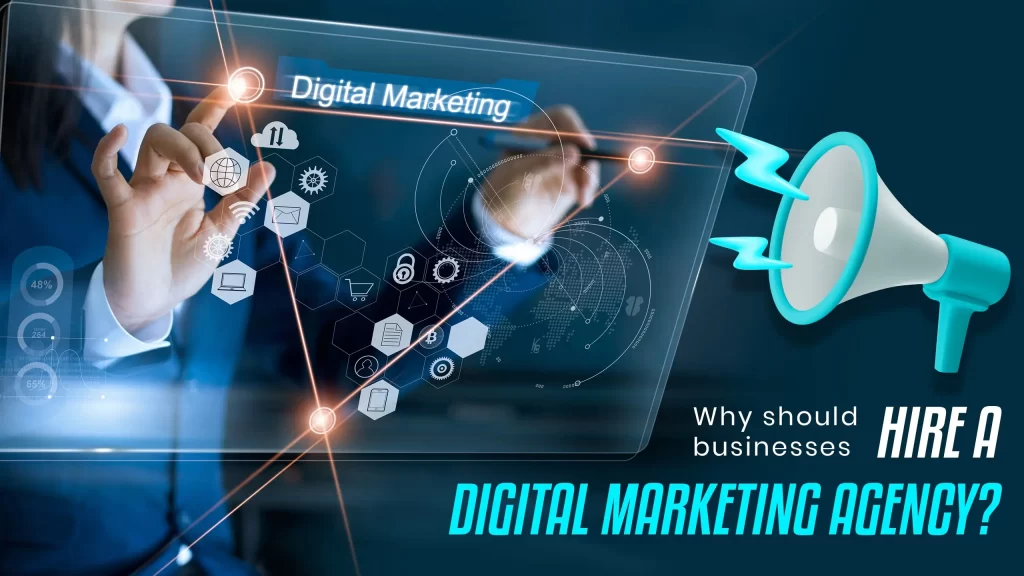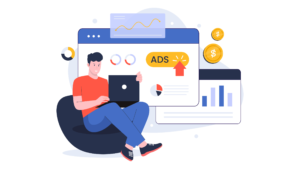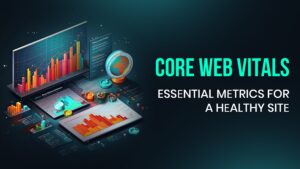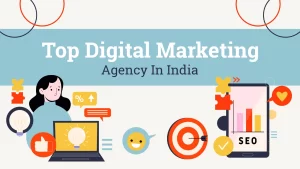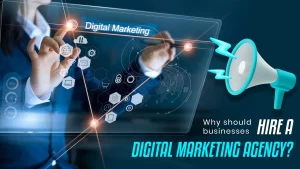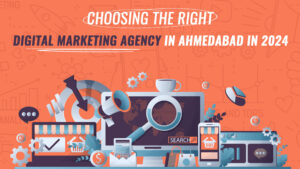Understanding the Need for Digital Marketing Expertise
In today’s fast-paced and increasingly digital world, the need for digital marketing expertise has never been more critical for businesses of all sizes and industries. With consumers spending more time online than ever before, and the proliferation of digital channels and platforms, traditional marketing methods are no longer sufficient to reach and engage target audiences effectively. In this comprehensive article, we delve into the importance of understanding digital marketing expertise and how it can benefit businesses in achieving their marketing objectives.
The Evolution of Marketing in the Digital Age
Gone are the days when businesses could rely solely on print ads, billboards, and television commercials to promote their products and services. The advent of the internet and the rise of digital technologies have fundamentally transformed the way companies market their offerings. Today, consumers have access to a wealth of information at their fingertips, and they expect brands to engage with them on their terms, across multiple online channels.
The Power of Digital Marketing
Digital marketing encompasses a broad range of tactics and strategies aimed at promoting products or services through digital channels such as search engines, social media platforms, email, and websites. Unlike traditional marketing methods, which often rely on mass media and broad messaging, digital marketing allows businesses to target specific audiences with personalized and relevant content.
Understanding the Digital Landscape
To succeed in digital marketing, businesses must first understand the unique characteristics of the digital landscape. Unlike traditional media, which operates on a one-to-many communication model, digital channels enable businesses to engage in one-to-one and many-to-many interactions with consumers. This shift from mass marketing to personalized communication has profound implications for how businesses approach marketing and advertising.
The Role of Digital Marketing Expertise
Digital marketing expertise encompasses a wide range of skills and competencies, including search engine optimization (SEO), social media marketing (SMM), content marketing, email marketing, pay-per-click (PPC) advertising, data analytics, and more. With the digital marketing landscape constantly evolving, businesses need professionals who can navigate this complex terrain and leverage the latest tools, technologies, and trends to drive results.
Driving Business Growth with Digital Marketing
One of the primary benefits of digital marketing expertise is its ability to drive business growth and ROI. Unlike traditional marketing methods, which can be difficult to track and measure, digital marketing offers real-time analytics and performance metrics that enable businesses to monitor the effectiveness of their campaigns and make data-driven decisions.
Targeting the Right Audience
One of the key principles of digital marketing is the ability to target specific audience segments with personalized messaging. By leveraging customer data and behavioral insights, businesses can create highly targeted marketing campaigns that resonate with their audience’s needs and interests. This targeted approach not only increases the effectiveness of marketing efforts but also helps businesses maximize their marketing budget and ROI.
Building Brand Awareness and Loyalty
In today’s crowded marketplace, building brand awareness and loyalty is essential for business success. Digital marketing expertise enables businesses to create compelling and engaging content that captures the attention of their target audience and builds brand affinity over time. Whether through social media posts, blog articles, email newsletters, or video content, digital marketing allows businesses to connect with their audience on a deeper level and foster long-term relationships.
Staying Ahead of the Competition
In an increasingly competitive business environment, staying ahead of the competition is crucial for survival. Digital marketing expertise gives businesses the competitive edge they need to stand out in the marketplace and differentiate themselves from competitors. By adopting innovative and creative digital marketing strategies, businesses can capture the attention of their target audience and position themselves as industry leaders.
Digital Marketing vs. Internet Marketing: Understanding the Key Differences
In today’s interconnected world, where businesses strive to establish a robust online presence, terms like Digital Marketing and Internet Marketing are often used interchangeably. However, despite their apparent similarities, these two concepts encompass distinct strategies and approaches aimed at achieving different objectives. In this comprehensive guide, we delve into the nuances of Digital Marketing vs. Internet Marketing, shedding light on their core differences, advantages, and applications.
Defining Digital Marketing
Digital Marketing encompasses a broad spectrum of online marketing tactics aimed at promoting products or services using digital channels and technologies. This includes channels such as websites, search engines, social media platforms, email, mobile apps, and other digital mediums. The primary objective of Digital Marketing is to reach and engage target audiences through various online touchpoints, driving brand awareness, customer acquisition, and revenue generation.
Key Components of Digital Marketing:
- Search Engine Optimization (SEO): Optimizing website content to improve its visibility and ranking on search engine results pages (SERPs), thereby driving organic traffic and enhancing online visibility.
- Social Media Marketing (SMM): Leveraging social media platforms such as Facebook, Instagram, Twitter, LinkedIn, and Pinterest to engage with audiences, build brand presence, and drive website traffic.
- Content Marketing: Creating and distributing valuable, relevant, and consistent content to attract and retain a target audience, ultimately driving profitable customer action.
- Email Marketing: Sending targeted email campaigns to subscribers with the aim of nurturing leads, promoting products or services, and fostering customer loyalty.
- Pay-Per-Click (PPC) Advertising: Running paid advertising campaigns on search engines (Google Ads) or social media platforms (Facebook Ads, LinkedIn Ads) to drive targeted traffic and generate leads or sales.
- Mobile Marketing: Optimizing marketing efforts to reach and engage audiences on mobile devices, including mobile-optimized websites, mobile apps, and SMS marketing.
Understanding Internet Marketing
Internet Marketing, on the other hand, is a broader term that encompasses all marketing efforts conducted online, including Digital Marketing. While Digital Marketing focuses specifically on digital channels and technologies, Internet Marketing encompasses a wider range of online and offline tactics aimed at promoting products or services to a global audience.
Key Components of Internet Marketing:
- Digital Marketing: As discussed earlier, Digital Marketing is a subset of Internet Marketing, focusing on online channels and tactics to reach and engage target audiences.
- Search Engine Marketing (SEM): A component of Internet Marketing that involves promoting websites by increasing their visibility in search engine results pages through paid advertising (PPC) and optimization techniques such as SEO.
- Affiliate Marketing: A performance-based marketing strategy where businesses reward affiliates for driving traffic or sales to their website through the affiliate’s marketing efforts.
- Email Marketing: Similar to Digital Marketing, email marketing is a key component of Internet Marketing, involving the use of email campaigns to communicate with prospects, customers, and subscribers.
- Influencer Marketing: Collaborating with influencers or key opinion leaders to promote products or services to their followers and target audience, leveraging their credibility and reach.
- Offline Marketing Integration: Internet Marketing also involves integrating online marketing efforts with traditional offline marketing tactics such as print advertising, TV commercials, radio ads, and direct mail campaigns to create a cohesive marketing strategy.
Differentiating Digital Marketing from Internet Marketing
While Digital Marketing and Internet Marketing share common objectives and utilize similar tactics, they differ in scope and focus. Digital Marketing specifically targets online channels and technologies, leveraging digital mediums such as websites, search engines, social media, and email to reach and engage target audiences. On the other hand, Internet Marketing encompasses a broader range of online and offline tactics, including Digital Marketing, search engine marketing, affiliate marketing, influencer marketing, and offline marketing integration.
Key Differences:
- Scope: Digital Marketing focuses exclusively on online channels and technologies, while Internet Marketing encompasses both online and offline tactics.
- Focus: Digital Marketing prioritizes digital mediums such as websites, search engines, social media, and email, whereas Internet Marketing incorporates a wider range of online and offline strategies.
- Integration: Internet Marketing involves integrating online marketing efforts with traditional offline marketing tactics, creating a cohesive marketing strategy that leverages the strengths of both mediums.
Conclusion: Embracing the Power of Digital Marketing
In conclusion, the decision to hire a Digital Marketing agency can have a transformative impact on the success and longevity of a business in today’s digital-first world. From enhancing online visibility and brand awareness to driving targeted audience engagement and generating tangible results, the benefits of partnering with a Digital Marketing agency are undeniable.
By leveraging the expertise, resources, and innovative strategies of a Digital Marketing agency, businesses can unlock new opportunities for growth, expand their reach, and stay ahead of the competition in an ever-evolving marketplace.
Digital Marketing Frequently Asked Questions
As the digital landscape continues to evolve at a rapid pace, businesses and individuals alike are constantly seeking clarity on the intricacies of Digital Marketing. To address common queries and provide valuable insights, we’ve compiled a comprehensive list of frequently asked questions (FAQs) about Digital Marketing.
1. What is Digital Marketing?
Digital Marketing refers to the use of digital channels, platforms, and technologies to promote products or services to a target audience. It encompasses various online tactics, including search engine optimization (SEO), social media marketing (SMM), content marketing, email marketing, pay-per-click (PPC) advertising, and more.
2. Why is Digital Marketing important?
In today’s digital age, consumers increasingly rely on online channels to research products, make purchasing decisions, and interact with brands. Digital Marketing enables businesses to reach their target audience where they spend most of their time – online. It helps enhance brand visibility, engage with customers effectively, drive website traffic, generate leads, and ultimately increase sales and revenue.
3. How often should businesses update their Digital Marketing strategies?
Digital Marketing strategies should be dynamic and adaptive to evolving market trends, consumer behavior, and technological advancements. While there is no one-size-fits-all answer, businesses should regularly review and update their Digital Marketing strategies to stay relevant and competitive. Factors such as changes in target audience preferences, competitor activity, algorithm updates, and emerging technologies may necessitate adjustments to existing strategies.
4. How can businesses measure the success of their Digital Marketing campaigns?
Measuring the success of Digital Marketing campaigns involves tracking various key performance indicators (KPIs) relevant to specific objectives. Some common metrics include website traffic, conversion rate, click-through rate (CTR), engagement rate, customer acquisition cost (CAC), return on investment (ROI), and more. Businesses can use web analytics tools such as Google Analytics, social media analytics platforms, email marketing software, and CRM systems to gather data and analyze campaign performance.
5. What are the benefits of outsourcing Digital Marketing services?
Outsourcing Digital Marketing services to a reputable agency or freelancer offers several benefits, including:
- Access to expertise: Digital Marketing professionals possess specialized skills and knowledge across various disciplines, ensuring effective strategy development and implementation.
- Cost-effectiveness: Outsourcing eliminates the need for hiring and training in-house staff, reducing overhead costs associated with salaries, benefits, and infrastructure.
- Scalability: Digital Marketing agencies can scale services according to business needs, accommodating growth and fluctuations in demand.
- Focus on core activities: Outsourcing frees up internal resources, allowing businesses to focus on core activities and strategic initiatives.
6. What are the emerging trends in Digital Marketing?
Several emerging trends are shaping the future of Digital Marketing, including:
- Artificial Intelligence (AI): AI-powered tools and technologies are revolutionizing various aspects of Digital Marketing, including personalized content recommendations, chatbots, predictive analytics, and more.
- Voice Search Optimization: With the rising popularity of voice-enabled devices and virtual assistants, optimizing content for voice search queries is becoming increasingly important for businesses.
- Video Marketing: Video content continues to dominate online platforms, with live streaming, short-form videos, and interactive video experiences gaining traction among audiences.
- Ephemeral Content: Platforms like Snapchat, Instagram Stories, and Facebook Stories are driving the popularity of ephemeral content, offering new opportunities for real-time engagement and authenticity.

